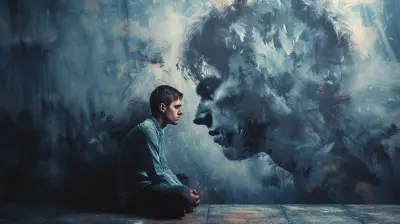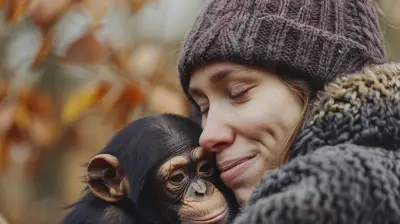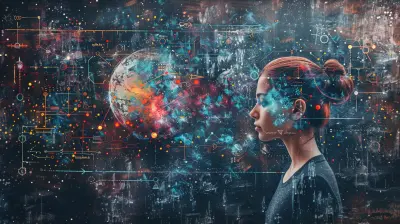The Connection Between Creativity and Mental Illness
30 September 2025
Creativity has long been linked to mental illness, with countless examples of artists, writers, and musicians who battled psychological struggles while producing groundbreaking work. From Vincent van Gogh to Sylvia Plath, history is filled with creative minds who have experienced deep emotional turmoil. But is there really a scientific link between creativity and mental illness, or is this just a romanticized myth?
Let’s dive into this fascinating topic and uncover the complex relationship between genius and madness.
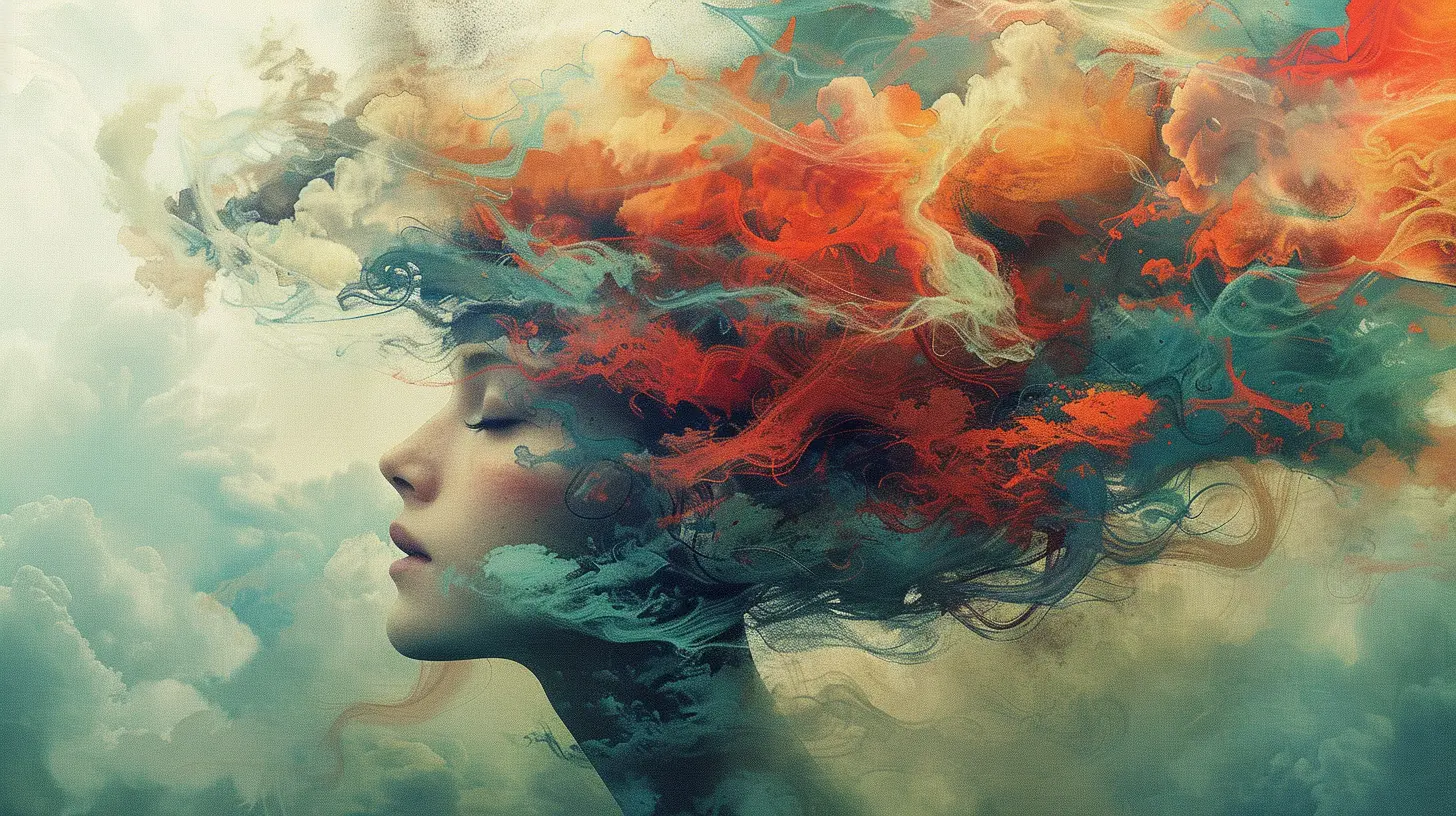
The Romanticized Notion of the "Tortured Artist"
We've all heard the stereotype of the "tortured artist"—a creative genius plagued by depression, anxiety, or even psychosis. Society often glorifies this image, as if suffering is a prerequisite for artistic brilliance.Think about it: when we hear about a brilliant musician struggling with addiction or a poet battling intense emotional pain, we're quick to assume that their struggles fuel their creativity. But is this really the case? Or are we simply noticing these patterns because they fit a long-standing narrative?
While historical anecdotes suggest a connection, science takes a more nuanced approach.
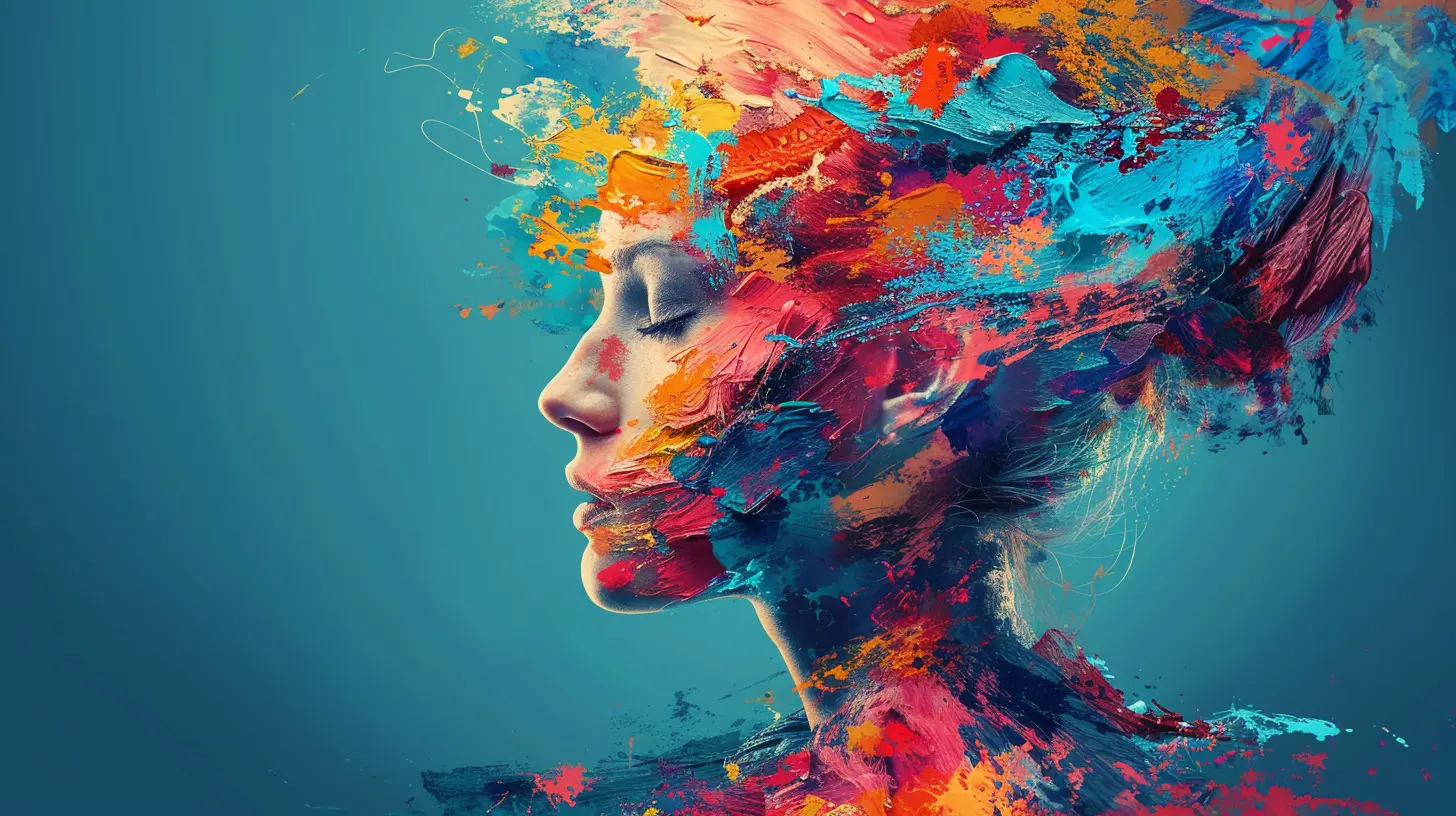
The Science Behind Creativity and Mental Illness
Researchers have long been intrigued by the link between creativity and mental illness. Several studies suggest that people in creative fields are more likely to suffer from mood disorders, particularly bipolar disorder and depression.One well-known study from Sweden found that writers, in particular, were more prone to psychiatric disorders, including schizophrenia, bipolar disorder, and substance abuse. Another study from Stanford University revealed that people with high creative abilities often display traits associated with mental illness, such as intense emotions, deep introspection, and unconventional thinking.
So, does this mean that mental illness is a necessary ingredient for creativity? Not quite.
The Role of the Brain in Creativity
The real connection lies in how the brain processes information. Creativity is often associated with divergent thinking—the ability to generate multiple ideas from a single prompt. Interestingly, studies show that people with certain mental illnesses, particularly bipolar disorder, tend to have increased connectivity between different regions of the brain. This can lead to heightened imagination, unique problem-solving abilities, and an increased ability to make connections between seemingly unrelated ideas.For instance, people with bipolar disorder often experience extreme mood swings. During manic episodes, they may feel an overwhelming surge of energy, racing thoughts, and increased motivation—traits that can contribute to creative breakthroughs. However, the depressive phases can be equally debilitating, making it difficult to sustain productivity.
Dopamine and Its Impact
Another important factor is dopamine, a neurotransmitter linked to pleasure, motivation, and cognitive flexibility. Creative individuals tend to have a more active dopamine system, which enhances their ability to think outside the box and take risks. Interestingly, studies have shown that people with schizophrenia and bipolar disorder also have altered dopamine activity.While an overactive dopamine system can boost creativity, it can also contribute to symptoms of psychosis, such as hallucinations and delusions. This might explain why some highly creative individuals experience both moments of brilliance and deep emotional turmoil.
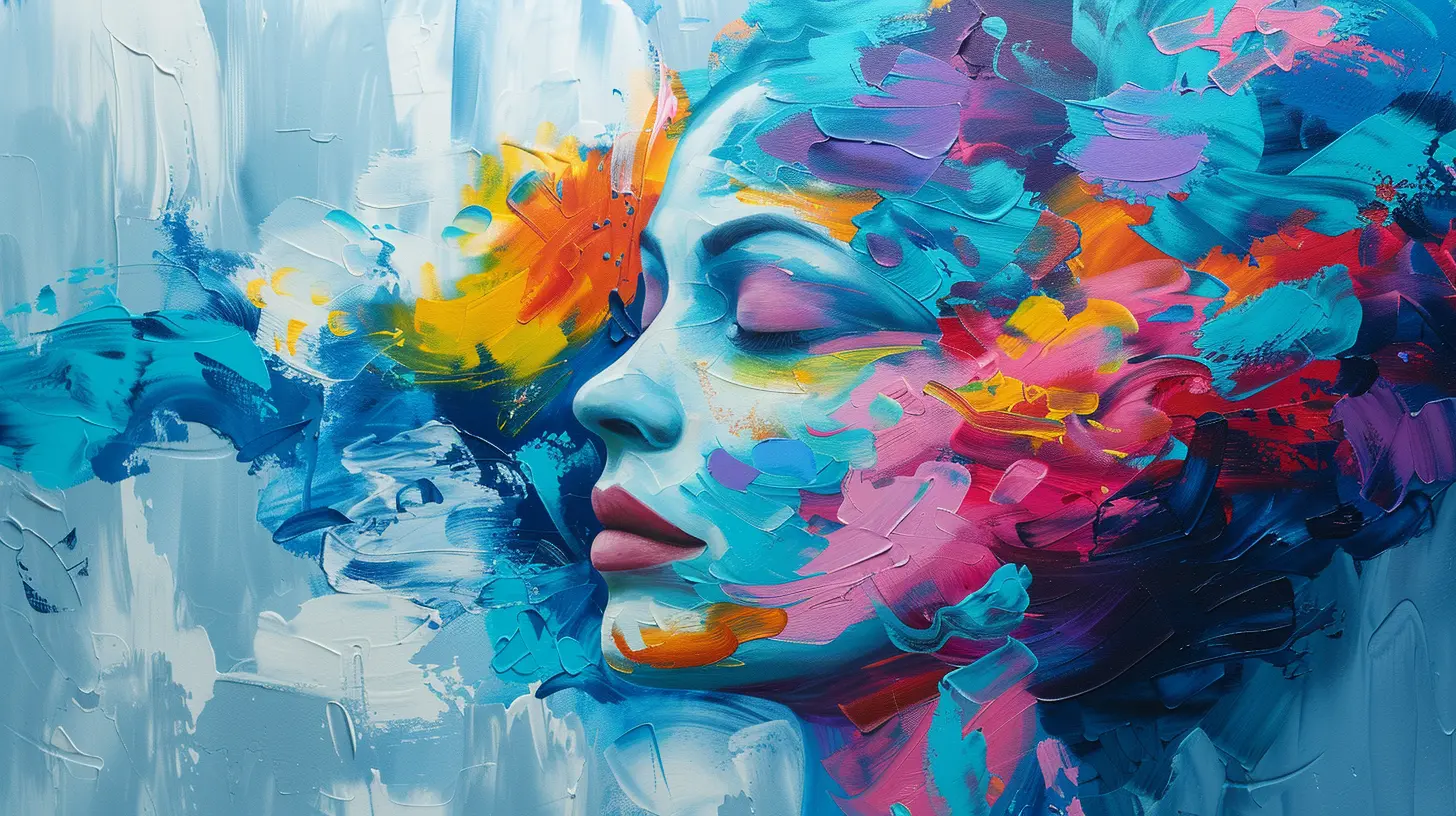
Are Creative People More Vulnerable to Mental Illness?
While creativity and mental illness often coexist, it's important to avoid assuming that all creative individuals are destined to struggle with mental health issues. Many highly imaginative people lead perfectly stable lives.However, creative individuals may be more vulnerable to mental illness due to certain personality traits:
- High Sensitivity – Creative minds are often deeply introspective and highly sensitive to their surroundings. This heightened awareness can lead to emotional intensity, which may increase the risk of anxiety and depression.
- Perfectionism – Many artists and writers hold themselves to impossibly high standards. The pressure to create something extraordinary can lead to self-doubt and frustration.
- Irregular Routines – Unlike traditional 9-to-5 jobs, creative work often involves irregular schedules, isolation, and financial instability—all of which can contribute to mental health struggles.
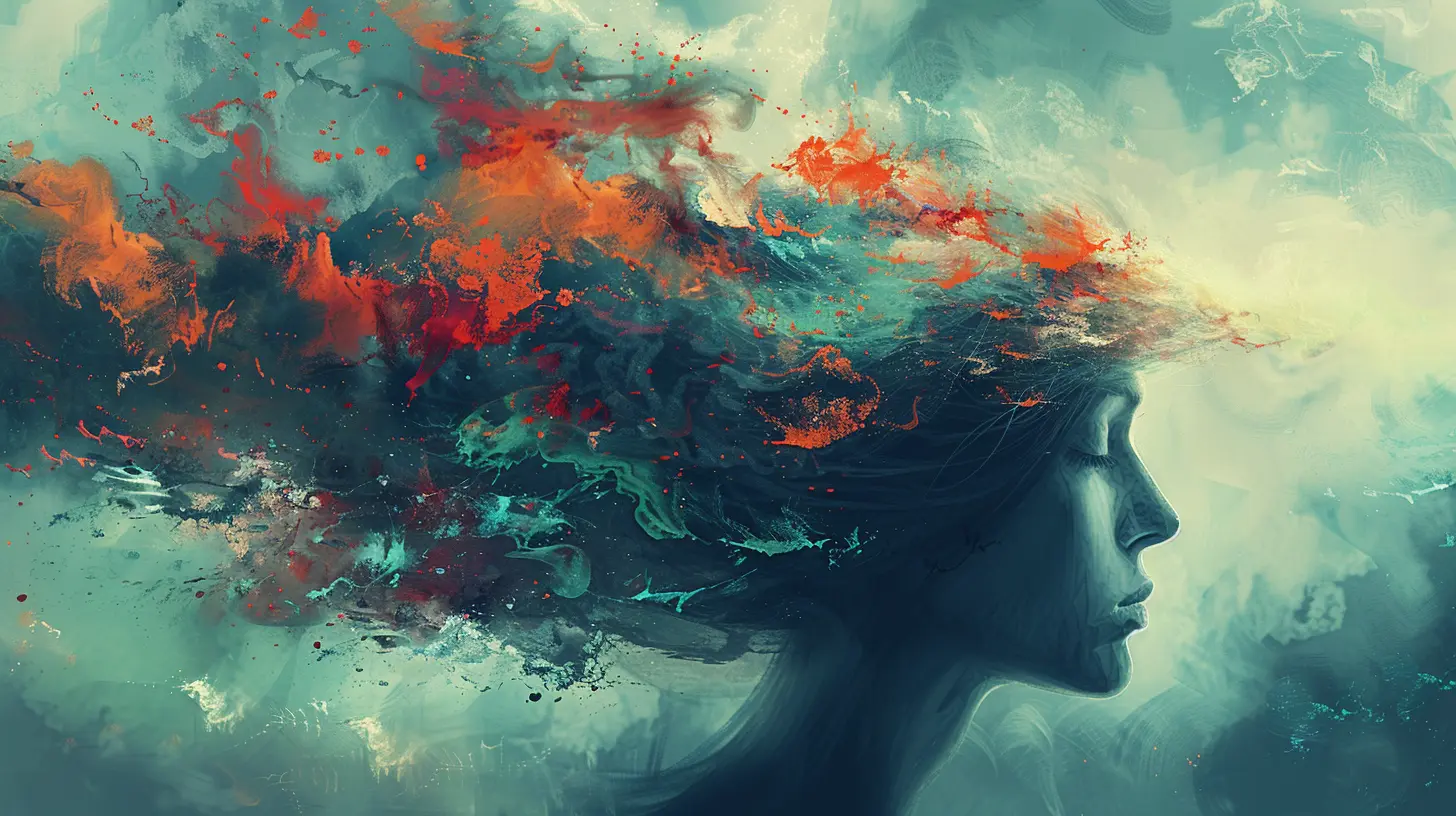
Does Mental Illness Enhance Creativity?
One of the biggest misconceptions is that mental illness fuels creativity. While it's true that some mental health conditions can lead to bursts of inspiration, unchecked mental illness can also be incredibly debilitating.Take depression, for example. While some artists may channel their pain into their work, severe depression can sap motivation, make it difficult to concentrate, and drain the desire to create. Similarly, while mania may trigger creative bursts, it can also lead to reckless behavior and burnout.
Rather than romanticizing suffering, we should recognize that creative individuals produce their best work when they have the right support systems in place. Therapy, medication, and self-care can help artists manage their mental health without sacrificing their creativity.
Can Creativity Be a Coping Mechanism?
Interestingly, while mental illness can sometimes hinder creativity, creative expression can also serve as a powerful coping mechanism. Art, music, writing, and even dance provide an outlet for processing emotions, reducing stress, and finding meaning in personal struggles.Many therapists use art therapy, music therapy, and expressive writing as tools to help individuals manage anxiety, depression, and trauma. Engaging in creative activities can stimulate positive emotions, improve problem-solving skills, and foster a sense of accomplishment.
For many, creativity isn’t just a talent—it’s a form of healing.
Striking a Balance Between Creativity and Mental Health
If you’re a creative person struggling with mental health challenges, it's important to find ways to nurture your creativity without compromising your well-being. Here are some tips to maintain that balance:1. Prioritize Mental Health
Taking care of your mental well-being should always come first. Therapy, medication, mindfulness, and self-care can help manage symptoms without stifling creativity.2. Establish Healthy Routines
Creative work doesn't have to mean chaotic schedules. Setting regular sleep patterns, exercise routines, and designated work hours can enhance productivity and stability.3. Embrace Collaboration
Creativity can sometimes feel isolating. Surrounding yourself with a supportive community of like-minded people can ease feelings of loneliness and provide inspiration.4. Let Go of Perfectionism
Creativity thrives when you allow yourself to make mistakes. Don't let self-doubt or unrealistic expectations rob you of the joy of creating.5. Use Creativity as a Tool for Healing
Instead of seeing creativity as a burden, use it as an emotional release. Writing in a journal, painting, or composing music can help process emotions in a healthy way.Final Thoughts
The connection between creativity and mental illness is complex—while some shared traits exist, mental illness is not a requirement for creativity. Instead of glorifying the "tortured artist" trope, we should focus on ways to support creative individuals so they can thrive without unnecessary suffering.Creativity is a gift, but like any powerful force, it needs balance. By prioritizing mental health, creatives can continue to produce meaningful work without losing themselves in the process.
all images in this post were generated using AI tools
Category:
Psychological ResearchAuthor:

Alexandra Butler
Discussion
rate this article
1 comments
Marlowe Jackson
Great article! It’s fascinating how creativity and mental health intersect. Exploring this connection can help destigmatize mental illness and highlight the strengths that often accompany it.
October 7, 2025 at 3:15 AM

Alexandra Butler
Thank you! I'm glad you enjoyed the article. Exploring this intersection is vital for understanding and destigmatizing mental health.
